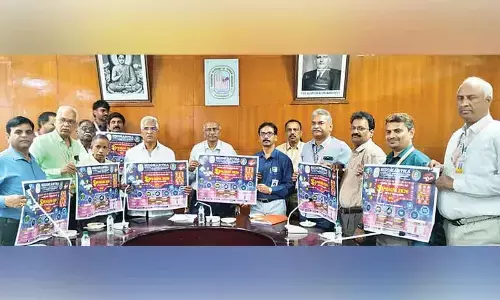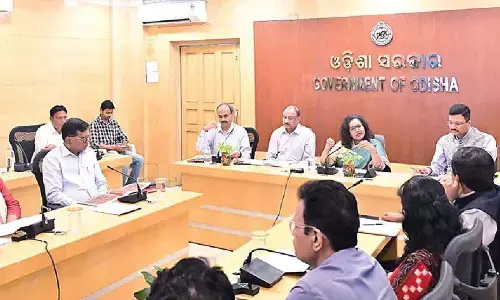Defeat of triumphalism
The Tamil factor must top the many reasons for Rajapaksa\'s defeat. He had just about escaped becoming an international pariah for his government\'s \'triumphalist\' approach to the Tamil minorities after ruthlessly crushing the LTTE
The Tamil factor must top the many reasons for Rajapaksa's defeat. He had just about escaped becoming an international pariah for his government's 'triumphalist' approach to the Tamil minorities after ruthlessly crushing the LTTE
Call it overarching ambition to win an unprecedented third term or a gambit that seasoned politicians play, Sri Lankan President Mahinda Rajapaksa, who ordered a snap poll full two years before his term would have ended, has lost miserably, but not unpredictably. His popularity was dropping discernibly because of widespread corruption and his family's stranglehold over the nation for a decade, muzzling political dissent. The signals were clear once a challenger emerged, not from the opposition outside but from within, when Maithripala Sirisena quit the government to contest the election, and found big support from the likes of Ranil Vickramsinghe and Chandrika Kumaratunga.
Rajapaksa had not calculated this. In that sense, he has gone the way many rulers go after executing controversial decisions, when they become unpopular and miscalculate their political moves. This happens more in a democracy – and Sri Lanka has, indeed, been one, despite all its flaws. The Tamil factor must top the many reasons for Rajapaksa's defeat. He had just about escaped becoming an international pariah at the United Nations, at the Commonwealth and other global and regional forums for his government's 'triumphalist' approach to the Tamil minorities after ruthlessly and decisively crushing the Liberation Tigers of Tamil Eelam (LTTE)'s violent campaign. There were many takers for his efforts to end three decades of violence, but that support diminished when defeating the LTTE came to be celebrated as if the army had won a war against an external enemy. Part of the blame must go to the Sinhala chauvinism, fanned by the Buddhist clergy.
Perceptions do matter and Rajapaksa failed to convince the world, even more his own people, that he had worked hard and diligently enough at national reconstruction and reconciliation. Undoubtedly a long process, it failed to take off. Too late in the day, weeks before opting for the elections, he appointed a Tamil Deputy Minister. Had he succeeded even partially in softening the blow on the Tamil populace that had lost many men and their lives, bludgeoned by years of violence and turmoil, it would not have voted the whole hog against him in Lanka's north and east.
While Tamil cinema stars would have obviously shunned him, brief campaign by Bollywood's Salman Khan and the very Lankan Jacqueline Fernandez did not help. Like all Sri Lankan leaders, Rajapaksa was adept at playing up to or playing off India, the big neighbour. His decade saw overtures to Pakistan and China that irritated India. He did strike a chord with the Narendra Modi government that carried no Tamil baggage unlike the previous Congress-led government and heeded Indian concerns on Pakistan's doubtful presence on his island. His release of convicted Indian fishermen and terming India a 'relative' vis-a-vis China, a 'friend,' are the stuff his successor would, hopefully, adopt. And India should play the "big neighbour" and not "big brother."











